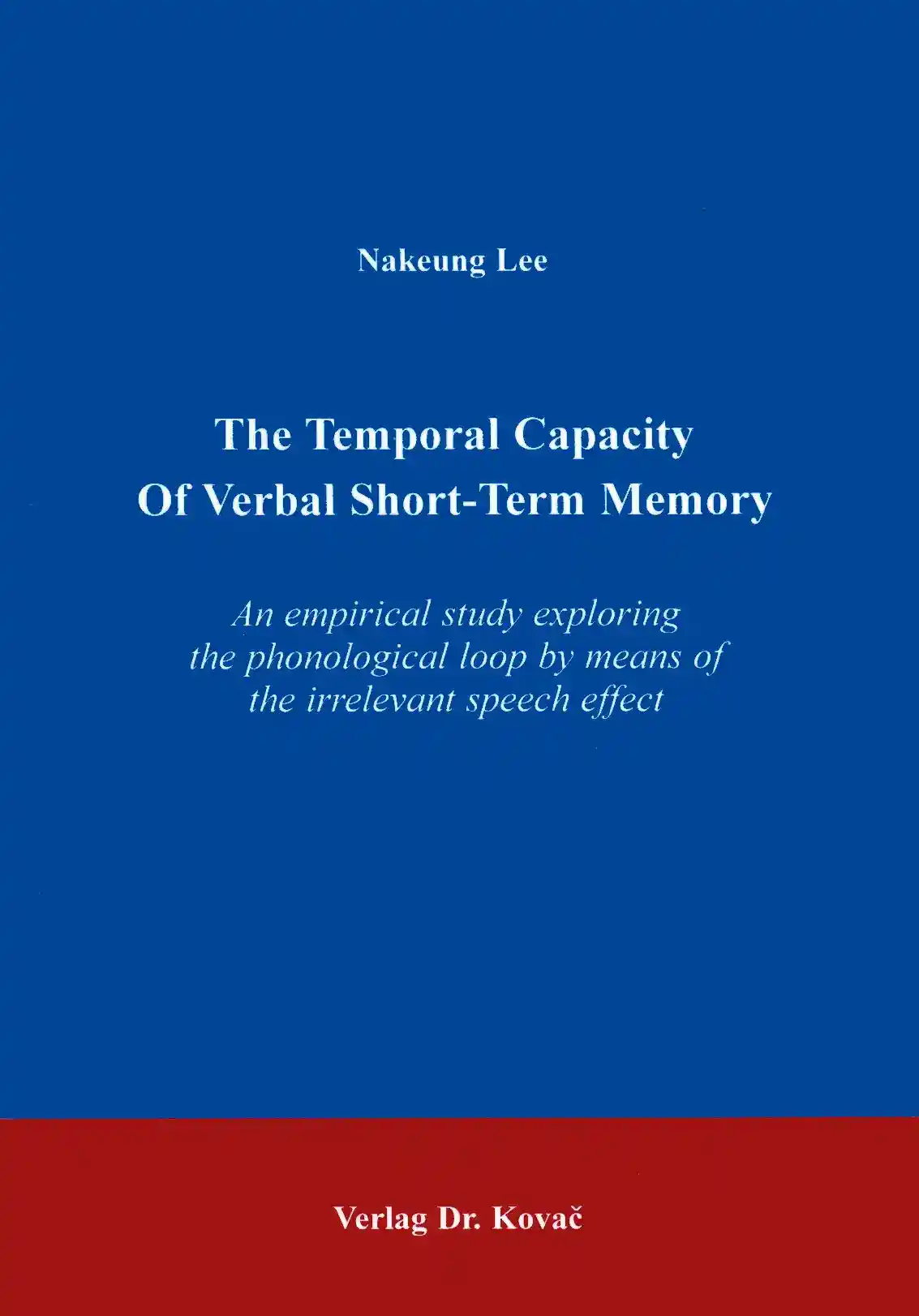Nakeung LeeThe temporal capacity of verbal short-term memory
An empirical study exploring the phonological loop by means of the irrelevant speech effort
Studienreihe psychologische Forschungsergebnisse, Band 54
Hamburg 1999, 171 Seiten
ISBN 978-3-86064-973-2 (Print)
Zum Inhalt
Nakeung Lee: „In the present study, we have on the one hand attempted to test two core-assumptions of the phonological loop model (Baddeley, 1986; 1990) by means of the combined effects of irrelevant speech and articulatory suppression. First, according to the phonological loop model, speech gains automatic and direct access into the phonological store, whereas read material has to be translated by means of subvocal rehearsal. This assumption was confirmed by the results of experiments 1 and 2. Articulatory suppression abolished the irrelevant speech effect when the recall items were presented visually. With auditory presentation, the irrelevant speech effect withstood articulatory suppression.
Experiments 3, 3a, and 4 were conducted to explore the temporal capacity of the phonological store. The results showed that, irrespective of presentation modality, the irrelevant speech effect persisted even when articulation was suppressed through a 10 seconds retention interval. These findings contradict Baddeley’s assumption that phonological traces decay rapidly, in about 1.5 to 2 seconds, when rehearsal is prevented by articulatory suppression. Phonological codes can be maintained for at least 10 seconds without the help of subvocal rehearsal.
The comparison between the irrelevant speech effect for visually and auditorily presented items (experiments 1 to 4) led us, in the final two experiments, to investigate the possibility that the irrelevant speech effect on auditorily presented items is actually a suffix effect. In conclusion then, our findings of experiments 5 and 6 favour the view that the irrelevant speech effects with visual and auditory presentation do not reflect the same mechanism. Rather, the irrelevant speech effect with auditorily presented recall items might result from the same mechanisms as those involved in the suffix effect.
